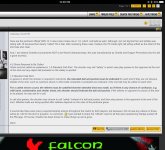Here are the facts:
Earl clearly intended to shoot the ten
Early misspoke and called the two
My opinions:
Jayson jumping on Earl's misstatement to claim a foul was chickenshit
Earl's denials that he misspoke was chickenshit
The problem is the RULE IS WRONG. Here is what the rule should be:
Player does not have to call ball if intention is clear (current rule)
If intention is not clear, player must call ball (current rule)
If a player makes the wrong ball it is a foul (current rule)
If the player calls the wrong ball but his intention is clear, and he shoots the intended ball, the intention controls (new rule)
This change in the rule would eliminate a misspeak or a misidentification of a ball and avoid the chickenshit actions of both Earl and Jason.
The reason we have the current rule is because the problem it is trying to address is that a player's intention may not be clear, especially if he is shooting into a mess of balls. So the idea is that by requiring him to verbally state his intention should avoid any ambiguity. But it doesn't, because there is a parallel ambiguity in the other direction, as in this case, because a player can actually misstate his own intention (by simply making a verbal mental error or by misidentifying a ball). (BTW, this may become an increasing problem with the increasing use of the Cyclop tv balls with their confusing colors.)
In any case, the whole point of the rule is to clearly indentify the shooter's INTENTION. So where the intention is clear (as it was in this case) the intention trumps the call. Where the intention is not clear from the shot, then the call trumps any claimed intention. Simple change in the rule to address both sides of the potential ambiguities.
Earl clearly intended to shoot the ten
Early misspoke and called the two
My opinions:
Jayson jumping on Earl's misstatement to claim a foul was chickenshit
Earl's denials that he misspoke was chickenshit
The problem is the RULE IS WRONG. Here is what the rule should be:
Player does not have to call ball if intention is clear (current rule)
If intention is not clear, player must call ball (current rule)
If a player makes the wrong ball it is a foul (current rule)
If the player calls the wrong ball but his intention is clear, and he shoots the intended ball, the intention controls (new rule)
This change in the rule would eliminate a misspeak or a misidentification of a ball and avoid the chickenshit actions of both Earl and Jason.
The reason we have the current rule is because the problem it is trying to address is that a player's intention may not be clear, especially if he is shooting into a mess of balls. So the idea is that by requiring him to verbally state his intention should avoid any ambiguity. But it doesn't, because there is a parallel ambiguity in the other direction, as in this case, because a player can actually misstate his own intention (by simply making a verbal mental error or by misidentifying a ball). (BTW, this may become an increasing problem with the increasing use of the Cyclop tv balls with their confusing colors.)
In any case, the whole point of the rule is to clearly indentify the shooter's INTENTION. So where the intention is clear (as it was in this case) the intention trumps the call. Where the intention is not clear from the shot, then the call trumps any claimed intention. Simple change in the rule to address both sides of the potential ambiguities.
